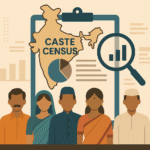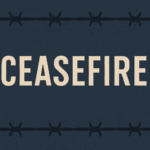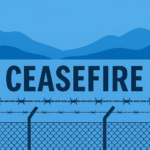When the Union government recently announced that the upcoming Census would include caste enumeration, the country witnessed a wave of celebration, especially from opposition parties and social justice advocates. “Historic,” many called it. Others declared it a political win for the opposition, which had long demanded the move. But amidst the noise of victory, data, and demands, a more uncomfortable question remains buried: Why, after 75 years of independence, does caste, caste politics and caste census still dominate Indian public life?
Let’s be clear. Caste-based inequality, discrimination, and underrepresentation are still real. No serious thinker or policymaker denies that. But the issue isn’t whether caste matters — it’s why it still matters so much, and more importantly, how long we plan to govern India through its prism.
A Caste Census, Yes. But at What Cost?
Nobody should oppose collecting data that could help identify and rectify long-standing injustices. Data is a tool. But tools can be misused, overused, or weaponized. The real concern is this: Are we using the caste census to fix a broken system, or are we building a system that will forever revolve around caste?
Over the decades, caste politics has made caste more than a social identity — it has become a political currency, an electoral calculation, and a policy shortcut. The danger is not in naming caste — it is in normalizing it as the only language of justice, governance, and entitlement.
Caste is Real. But So Are Poverty, Unemployment, and Illiteracy
Let’s look around. India’s challenges today include joblessness, poor public health, crumbling infrastructure, rural distress, and a fragile education system. Yet, public debate, especially during elections, continues to orbit caste combinations and quotas. Why are we not talking more about development for all, with focused help for those most in need — regardless of their caste?
Progressive democracies across the world have evolved from identity-based reparations to universal developmental frameworks that protect the weakest. Shouldn’t India, too, build systems that ensure education, employment, and healthcare for every deprived individual?
Have We Trapped Ourselves in a Caste-Based Democracy?
Instead of caste fading into the background as India modernized, it has become more entrenched. Political parties use it to build vote banks. Bureaucracies use it to justify static quotas. Communities use it as leverage. Ironically, what was once a system of oppression is now a bargaining chip — one that reinforces division while promising equality.
What’s worse, public identity in India is now often shaped more by one’s caste than by shared citizenship, civic duty, or national belonging. This wasn’t Ambedkar’s dream. Nor was it the vision of our Constitution, which speaks of fraternity and dignity, not permanent compartmentalization.
When One Group Speaks for All
Another uncomfortable truth that often goes unspoken is this: within the deprived castes, not everyone is equally deprived. Over time, dominant sub-groups within these larger categories have come to corner a significant share of the benefits — in education, jobs, and political power.
This internal imbalance has created new elites who claim to speak for the entire caste group, even as the poorest and most voiceless within their communities remain excluded. Without mechanisms to address intra-caste inequality, the caste census risks entrenching these power dynamics even further. Justice cannot be served when only a few continue to benefit in the name of many.
Can We Have Justice Without Caste Politics?
The answer is yes — but it will take courage. It will require us to build policies based on socio-economic data, not just caste tags. It means targeting poverty, exclusion, and illiteracy, wherever they exist — whether among SCs, OBCs, minorities, women, or the rural poor.
It means investing in public education, empowering local governance, and ensuring representation based on merit, need, and fairness. We don’t need to erase caste. But we must resist the temptation to make it the only lens through which we see India’s problems — or imagine its future.
The Bigger Question
A caste census might be necessary, but it must not be the ultimate destination of our political imagination. The real victory will come not when we count castes, but when we stop needing to — when justice, opportunity, and dignity reach every Indian not because of their caste, but despite it.
India deserves a future that’s more ambitious than ever. It’s time to stop measuring ourselves by what divides us and start working for what unites us.
References
Alam, Afroz. Is the Announcement of the Caste Census Merely a Victory of Oppositional Politics?, Indian Express, May 1, 2025.
Jaffrelot, Christophe. India’s Silent Revolution. Hurst & Co., 2003.
Teltumbde, Anand. The Persistence of Caste. Zed Books, 2010.
Bhargava, Rajeev. Politics and Ethics of the Indian Constitution. Oxford University Press, 2008.
Sen, Amartya. Development as Freedom. Oxford University Press, 1999.
Rawls, John. A Theory of Justice. Harvard University Press, 1999.
Srinivas, M.N. Caste in Modern India. Asia Publishing House, 1962.
Nussbaum, Martha. Creating Capabilities. Harvard University Press, 2011.
Aloysius, G. Nationalism Without a Nation in India. Oxford University Press, 1997.
Ilaiah, Kancha. Why I am Not a Hindu. Samya, 1996
About the Author
Dr. Mudassir Hasan Jafri is a Ph.D in Human Rights and currently editor at RightsRecall.com. He writes on human rights., democracy, and development.




